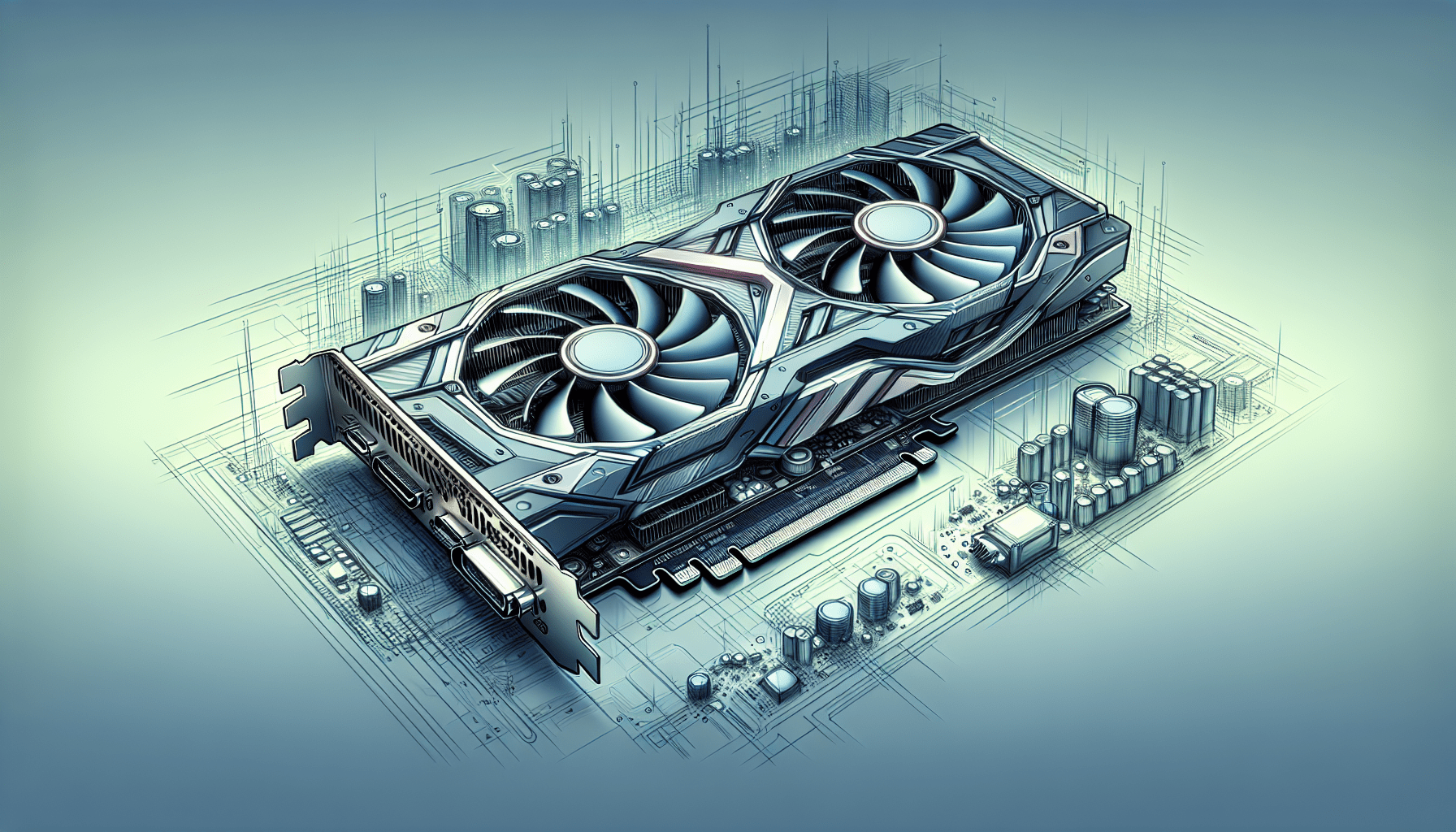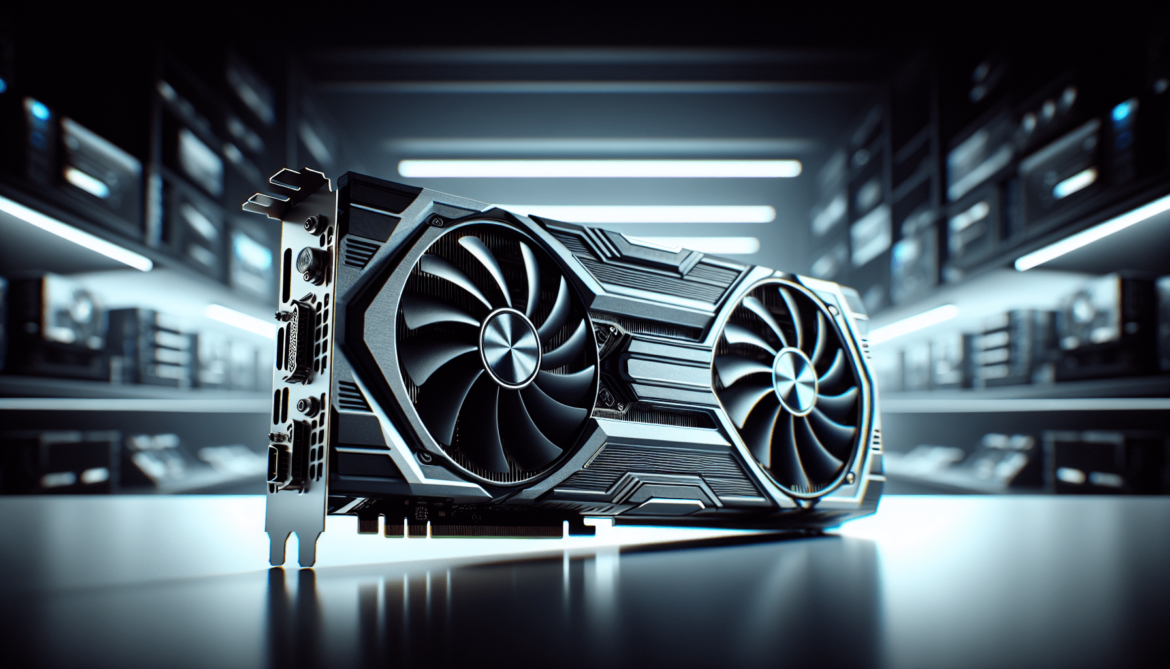What Is The World’s Most Powerful Graphics Card? If you’re reading this, chances are you might be a tech enthusiast, a gamer, or perhaps someone venturing into the world of high-performance computing. No matter the reason, you’re in for a treat. Graphics cards, also known as GPUs (Graphics Processing Units), play a pivotal role in determining your PC’s performance, whether it’s for gaming, 3D rendering, or data science.
Understanding Graphics Cards
What is a Graphics Card?
At its core, a graphics card is a piece of hardware responsible for rendering images and video to your monitor. It’s what determines how good your game or movie looks and how smoothly it runs.
Why are Graphics Cards Important?
Graphics cards are crucial because they offload intensive tasks from the CPU to the GPU. This specialization allows for a significant performance boost, especially in graphics-intensive applications.
Related:
What is NVIDIA GeForce RTX?
Types of Graphics Cards
There are two main types of graphics cards:
- Integrated Graphics: Built into the CPU, these are generally less powerful but more energy-efficient.
- Dedicated Graphics: Separate units with their memory, offering significantly more power.
What Makes a Graphics Card Powerful?
GPU Architecture
The architecture of a GPU is like the foundation of a building; it determines how well everything else works. Modern GPUs use architectures like NVIDIA’s Ampere or AMD’s RDNA, which includes numerous advancements over previous generations.
Memory Type and Size
The type and amount of memory (VRAM) in a graphics card significantly impact its performance. More VRAM allows for higher resolutions and more complex textures, while faster memory types like GDDR6X provide quicker data transfer rates.
Core Clock and Boost Clock
The core clock and boost clock speeds are essentially the operating frequencies of the GPU. A higher clock speed means the GPU can perform more calculations per second.
CUDA Cores / Stream Processors
CUDA cores (for NVIDIA cards) or Stream Processors (for AMD) are smaller processing units within the GPU. The more you have, the better the card can handle parallel tasks.
The Contenders: Top Graphics Cards
NVIDIA GeForce RTX 4090
NVIDIA’s RTX series has been leading the pack for a while, and the RTX 4090 is no exception.
| Feature | Specification |
|---|---|
| Architecture | Ampere |
| Memory Type | 24 GB GDDR6X |
| Core Clock | 1395 MHz |
| Boost Clock | 1695 MHz |
| CUDA Cores | 10496 |
| Ray Tracing Cores | 82 |
| Tensor Cores | 328 |
The RTX 4090 excels in ray tracing and DLSS (Deep Learning Super Sampling), offering unparalleled visual fidelity and performance in gaming.
AMD Radeon RX 7900 XTX
AMD’s RDNA 3 architecture powers the Radeon RX 7900 XTX, making it a formidable competitor to NVIDIA’s offerings.
| Feature | Specification |
|---|---|
| Architecture | RDNA 3 |
| Memory Type | 16 GB GDDR6 |
| Core Clock | 1500 MHz |
| Boost Clock | 2100 MHz |
| Stream Processors | 5120 |
| Ray Accelerators | 80 |
The RX 7900 XTX provides exceptional performance, especially for 4K gaming and content creation, all while being more affordable than its NVIDIA counterpart.

Specialized Graphics Cards
NVIDIA Quadro RTX 8000
If you’re into professional content creation or scientific computations, the Quadro RTX 8000 is designed with you in mind.
| Feature | Specification |
|---|---|
| Architecture | Turing |
| Memory Type | 48 GB GDDR6 |
| Core Clock | 1395 MHz |
| Boost Clock | 1770 MHz |
| CUDA Cores | 4608 |
| Tensor Cores | 576 |
With enterprise-level features and capabilities, the Quadro RTX 8000 offers top-notch performance for specialized tasks.
AMD Radeon Pro VII
For professionals in video editing, 3D rendering, and complex simulations, the AMD Radeon Pro VII is a robust choice.
| Feature | Specification |
|---|---|
| Architecture | Vega |
| Memory Type | 16 GB HBM2 |
| Core Clock | 1400 MHz |
| Boost Clock | 1700 MHz |
| Stream Processors | 3840 |
| Ray Accelerators | N/A |
The Radeon Pro VII excels in high-bandwidth tasks and is optimized for professional software suites.
Factors to Consider When Choosing a Graphics Card
Performance vs. Requirement
Assess your needs. Are you a gamer looking to play the latest titles at 4K, or are you a professional requiring high computational power for rendering?
Budget
High-end graphics cards can be quite expensive. It’s essential to find a balance between what you need and what you can afford.
Compatibility
Ensure that the card fits into your PC case and is compatible with your motherboard and power supply unit (PSU).
Future-Proofing
Investing in a slightly more powerful card can save you money in the long run, especially as software and games become more demanding.
The Future of Graphics Cards
AI and Machine Learning
AI and machine learning are increasingly becoming part of GPU architecture. Features like NVIDIA’s DLSS use AI to enhance performance, and this trend is expected to grow.
Ray Tracing
Real-time ray tracing is the next big thing in graphics. It offers incredibly realistic lighting and shadows, and future GPUs will only get better at it.
Quantum Computing
Though still in its infancy, quantum computing could revolutionize how GPUs handle calculations, making them exponentially more powerful.
So, what is the world’s most powerful graphics card? It’s challenging to pin down a single “most powerful” card as the term can be subjective based on your specific needs. If you’re a gamer looking for the best performance, the NVIDIA GeForce RTX 4090 stands out. On the other hand, if your work revolves around professional content creation, the NVIDIA Quadro RTX 8000 might be your best bet.
In the ever-evolving world of technology, staying updated with the latest advancements can give you a significant edge, whether for gaming or professional projects. Hopefully, this article has provided you with the insights you need to make an informed choice.
